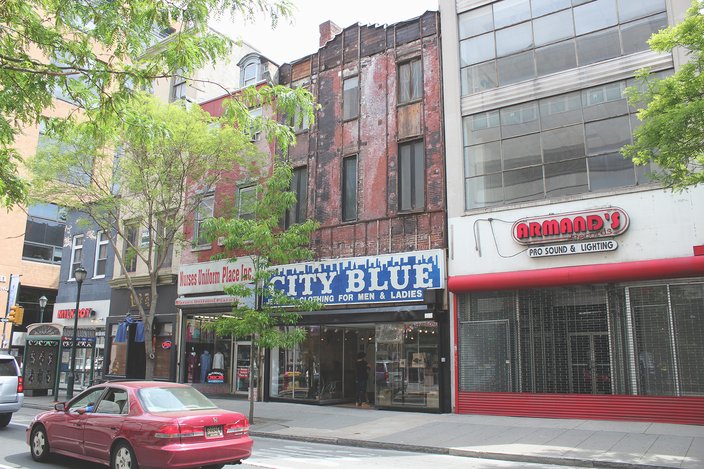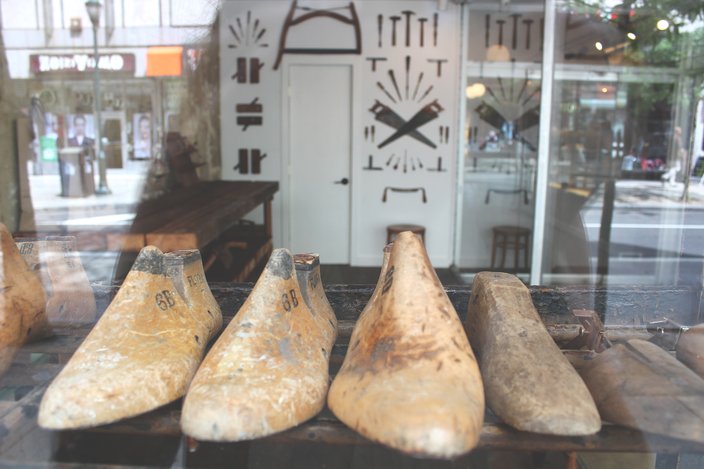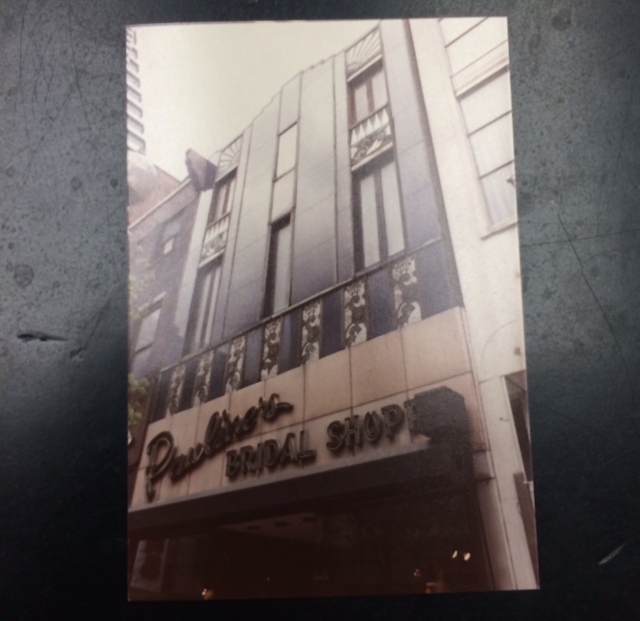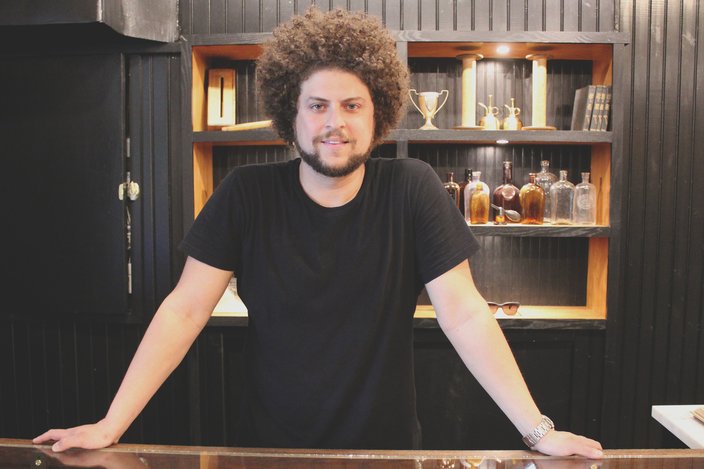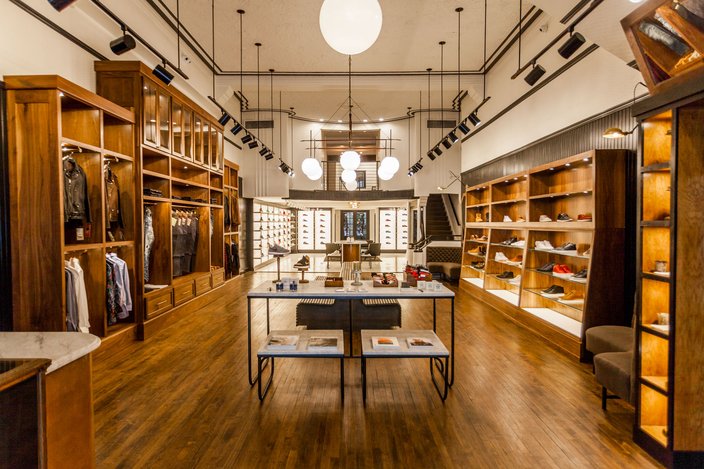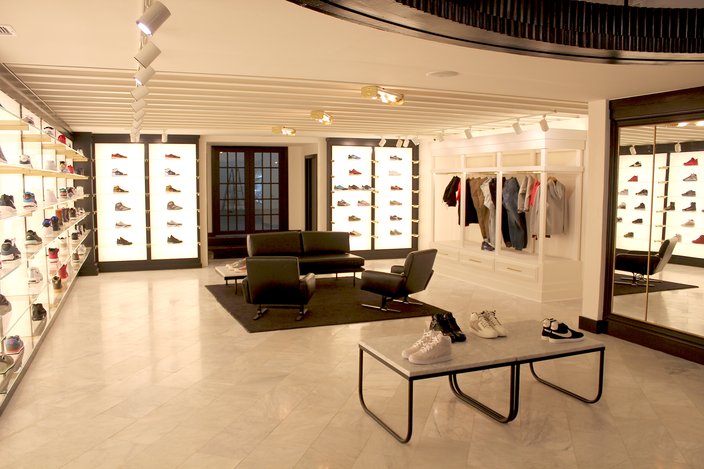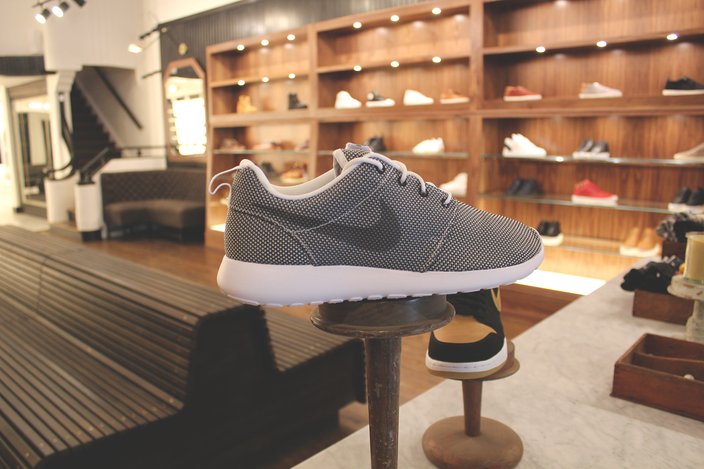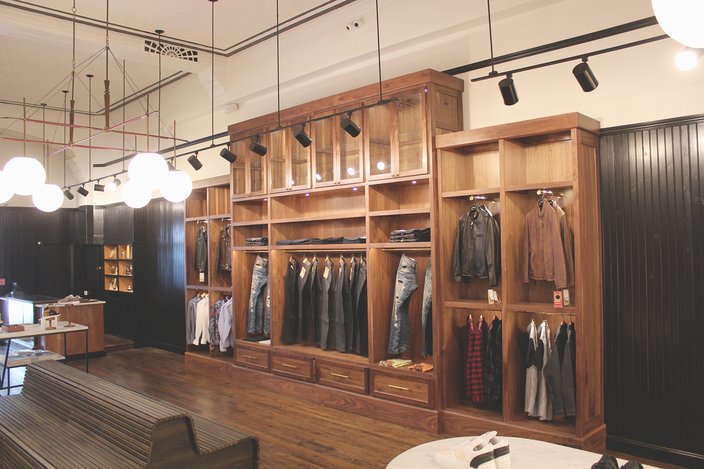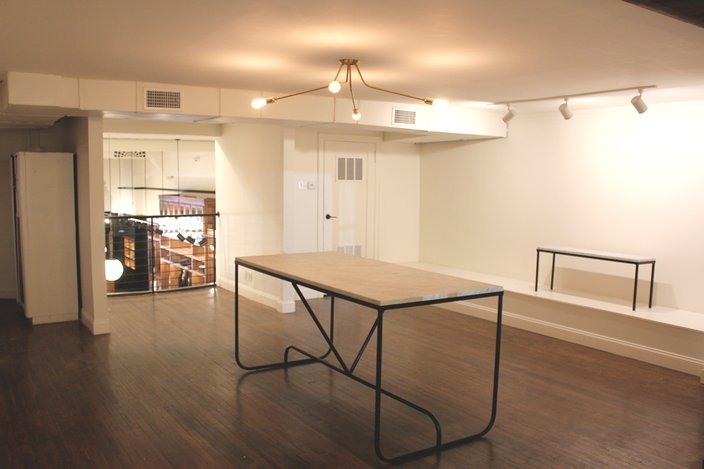
May 14, 2015
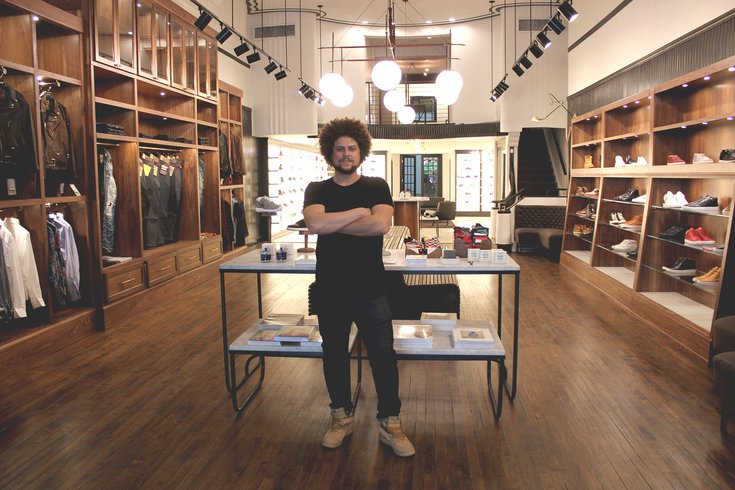 Leah Kauffman/PhillyVoice
Leah Kauffman/PhillyVoice
Brian Nadav stands in front of his new menswear boutique, Lapstone and Hammer.
Philadelphia sneaker collectors rejoice. Inconspicuously wedged between a nursing uniform shop and the now defunct Armand’s Records at 1106 Chestnut Street, Lapstone & Hammer — the latest retail offering in premium sportswear, is preparing for a soft opening Friday.
And if sheer space weren't already enough to impress customers, Lapstone & Hammer has been magnificently outfitted by sought-after hospitality designer Kate Rohrer.
“I wanted to create an upscale, sophisticated shopping experience for sneakerheads. This was about creating a higher-end retail space for Philadelphia,” says Brian Nadav, the shop’s owner, who is in the process of renovating the building's facade to its former Art Deco glory.
The shop is named after the lapstone and the hammer, traditional tools once used by cobblers to assemble shoes. The purpose is to evoke the days of yore, when makers meticulously crafted goods by hand.
1106 Chestnut Street is a fitting home for Lapstone & Hammer. The Market East corridor is a very literal embodiment of deconstruction and reconstruction, where foundations and facades peer out of construction zones from behind a veil of dust and debris. John Connors of Brickstone Realty has invested hundreds of millions of dollars on this block alone.
Nadav hopes to ride the wave of economic stimulation pouring into the neighborhood. “They’ve been talking about this Market East renovation now for decades, since I was a kid, from City Hall to Independence Hall was a dead zone. It’s finally coming to life," he said. "I’ve been waiting for this block to turn. We wouldn’t put this kind of investment into a space that is not ours, where we could be kicked out at any time."
The building has auspicious beginnings. It was home to one of America’s first pharmacy chains, Evans Pharmacy, in the early 20th century. Famous for their 49-foot soda pop bar, Evans’ sold over 1,000 soda pops each day.
In 1933, the building changed hands and became the first home of Dr. Scholl’s Comfort Shoe Store. Dr. Scholl’s commissioned Chicago-based architect Markham Ashberry to shape the property into an Art Deco marvel. Ashberry imported from Germany black Vitrolite, a heavy structural glass, to create the backdrop for a theme of sunbeams and flora fashioned from copper and nickel.
From the 50s through the 70s, 1106 was home to Pauline's Bridal shop. City Blue took over the building in 1981 and closed in 2014 to restore the building.
"It’s a project that I’ve been working on for the past two years in terms of concept... presenting it, working with Kate [Rohrer] on the design, presenting it to vendors, closing down the City Blue location that was here, and saving this whole building."
Like his building at 1106 Chestnut, Brian is no stranger to retail. He’s been working in it virtually his entire life. His father, Joseph Nadav is founding partner of urban retail chain City Blue, founded in Philadelphia in 1981.
As a kid, Nadav worked in the City Blue stock room. He moved up the rungs to become a sneaker salesman in middle school and high school, and was promoted to manager of their Trenton, New Jersey, location for a few years. In 2007, he became the footwear buyer. In recent years, Brian has spearheaded the charge of renovating and modernizing City Blue. Today, he runs the 23 stores under the City Blue umbrella.
Nadav sensed the shifting landscape in streetwear toward footwear early on.“In the 80s and 90s, City Blue’s business was 80 percent apparel and 20 percent footwear. Today, it’s more like 70-30 perfect footwear to apparel,”
In fact, years ago, he began to put aside stock from City Blue’s Air Jordan releases. He’s since accumulated 2,000 pairs of highly coveted Air Jordans, many of which will be available for VIPs to purchase in a private room upstairs.
“Initially I was putting one pair of each shoe aside. I thought, why don’t I put six pairs aside? Then it snowballed and I was putting away 12 pairs of each crazy release. Let’s put 24 aside. Let’s put 36 pairs aside.”
In the sneaker industry, Lapstone & Hammer is known as a "pinnacle shop". In other words, they will receive products that 99 percent of other sneaker retailers will not. This includes limited edition runs and quick strikes. Expect to see lines around the corner this Saturday for the rerelease of the Jordan VII Hare, a sneaker that has not been available since the premiere of the 1996 film 'Space Jam'.
One well-known pinnacle shop is Ubiq, located at 1509 Walnut Street. "They take a youthful approach. They’re from a streetwear, skate background. The concept here was to take an elevated, sophisticated approach to introduce handmade leather shoes, the stuff that we are exclusive with. Lapstone & Hammer was built to appeal to a more mature, more sophisticated crowd."
Nadav is planning a Jordan restock for the end of May when he’ll pump 300 pairs of “crazy limited edition shoes” into the ecosystem, all at box price. He hopes to garner respect in the sneaker community, as he could easily sell these shoes for $500-$600 per pair. He's allowing customers to pick out one pair for box price.
He says of potential resellers, “ Those kids are always going to come out. Every sneakerhead wants to be an entrepreneur. They get two pairs. They sell one for triple the price. It pays for their shoe. It’s their little business, which I think is great."
Lapstone & Hammer will open to the public on Friday, May 15 at 10 a.m. 1106 Chestnut Street, Philadelphia.
Schott's classic jacket, "The Perfecto" was worn by James Dean and Marlon Brando.
A window upstairs in the mezzanine looks out onto Pauline's, the gallery space in the back of the store.
